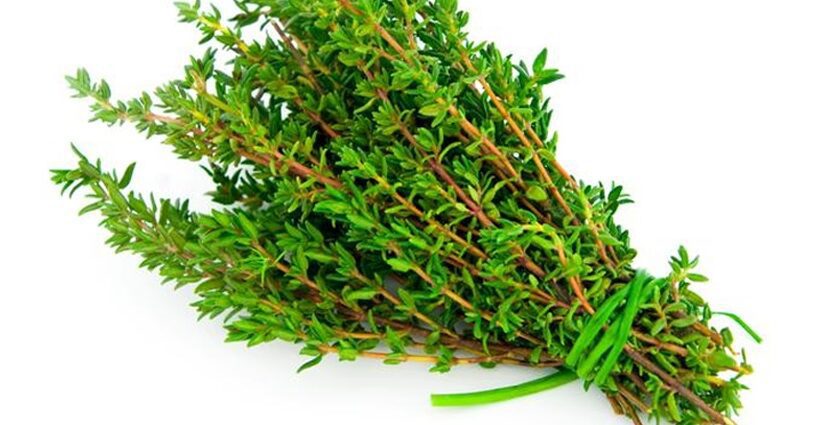Contents
Thyme: medicinal and beneficial properties. Video
Thyme ordinary (thyme, savory, Bogorodskaya grass, zhadonik, lemon odor, chebarka) is a perennial spicy plant that is used as a seasoning and remedy.
Thyme: medicinal and beneficial properties
The chemical composition and beneficial properties of thyme
Thyme is highly prized for its essential oil. It contains the substance thymol, which has high bactericidal properties. With the help of thyme oil, many viral diseases are treated; it is added to oral care products, medical soaps, and creams. Also, thyme contains: – tannins; – minerals; – fats; – vitamin C; – B vitamins; – carotene; – flavonoids; – useful bitterness.
Thyme helps to improve the physical and mental state of a person with chronic fatigue. Tea made from this herb is recommended to drink to normalize blood circulation and improve brain function.
For women, thyme infusions and decoctions are a wonderful natural medicine that helps to regulate the menstrual cycle, reduces bleeding and relieves pain on critical days.
Thanks to this plant, you can get rid of kidney edema, as it acts as a diuretic. Thyme is used to treat influenza, SARS, tonsillitis, and wet coughs.
For the treatment of respiratory diseases, 1-2 drops of thyme essential oil are dripped into a teaspoon of honey and consumed three times a day.
Thyme has anthelmintic properties, with its help young children are treated for pinworms.
Thyme also has a beneficial effect on the condition of the gastrointestinal tract. Tea made from it increases appetite and improves digestion, and also helps to normalize stools and get rid of gas.
Only a flowering plant is used as a medicine. Harvested thyme tops and air dry in partial shade
A decoction of thyme is used to treat neuroses, it is added to the bath to relieve joint pain in arthritis and gout.
Thyme leaves are an aromatic condiment that enhances the flavor and aroma of the dishes to which it is added. Thyme, as a spice for fatty foods, not only enhances its taste, but helps to digest it.
Thyme is added to meat, cheese, legumes, vegetable dishes. Fresh and dried thyme leaves are used for canning vegetables. Thyme is used for making various drinks, sauces, gravy.
The thymol contained in the plant can cause hyperthyroidism. Therefore, when using thyme as a remedy, the dosage must be carefully observed.
Thyme essential oil should not be used during pregnancy. And also apply for a long time, as it can provoke intoxication.
Read also an interesting article about the choice of an ionizer to purify the air in the house.










